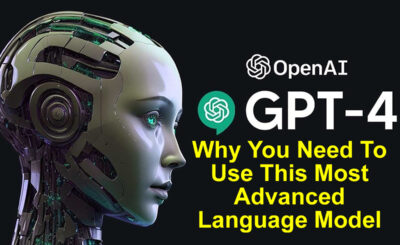What is Artificial Intelligence
What is Artificial Intelligence A.I you may ask, Artificial intelligence, or ( AI ), is a rapidly growing field that has the potential to revolutionize the way we live, work, and interact with technology. AI refers to the ability of machines to learn, reason, and make decisions like humans.
This technology is already being used in a variety of industries, from healthcare to finance to transportation, and is expected to become even more prevalent in the coming years. Artificial intelligence has emerged as one of the most transformative technologies of the 21st century.

Artificial Intelligence is the next big thing, are you ready?
From A.I Marketing, healthcare, agriculture, transportation, manufacturing, etc Artificial Intelligence (A.I) is touching everything we do
It’s has potential to reshape the economies, and impact our daily lives is unparalleled. From autonomous vehicles and virtual assistant to advanced medical diagnostic and personalized recommendations , AI is rapidly becoming an integral part of our society. In this article, we will embark on a captivating exploration of AI, delving into it’s definition, eveloution, and the remarkable applications that have propelled it to forefront of technological innovation.
However, there are also concerns about the impact of AI on society. Some worry that AI could lead to job losses as machines become more capable of performing tasks that were previously done by humans . There are also concerns about the potential for AI to be used for malicious purposes, such as cyberattacks or the creation of autonomous weapons.
To address these concerns, many experts are calling for the development of ethical guidelines and regulations to ensure that AI is used responsibly and for the benefits of society as a whole.
This includes ensuring that AI is transparent and accountable, and that it is designed to be compatible with human values and ethics. Overall, AI has the potential to be a powerful tool for improving our lives and solving some of the world’s most pressing problems. However, it is important that we approach this technology with caution and foresight to ensure that it is used in a way that benefits everyone.
What are the 4 types of artificial intelligence?
Arend Hintze, an assistant professor of integrative biology and computer science and engineering at Michigan State University, explained that AI can be categorized into four types, beginning with the task-specific intelligent systems in wide use today and progressing to sentient systems, which do not yet exist. The categories are as follows.
- Type 1: Reactive machines. These AI systems have no memory and are task-specific. An example is Deep Blue, the IBM chess program that beat Garry Kasparov in the 1990s. Deep Blue can identify pieces on a chessboard and make predictions, but because it has no memory, it cannot use past experiences to inform future ones.
- Type 2: Limited memory. These AI systems have memory, so they can use past experiences to inform future decisions. Some of the decision-making functions in self-driving cars are designed this way.
- Type 3: Theory of mind. Theory of mind is a psychology term. When applied to AI, it means the system would have the social intelligence to understand emotions. This type of AI will be able to infer human intentions and predict behavior, a necessary skill for AI systems to become integral members of human teams.
- Type 4: Self-awareness. In this category, AI systems have a sense of self, which gives them consciousness. Machines with self-awareness understand their own current state. This type of AI does not yet exist.
The history of AI can be traced back to the 1940s and 1950s when the concept of “thinking machines” emerged. Some significant milestones include:
- In 1956, the Dartmouth Conference marked the birth of AI as a field of study.
- The 1960s and 1970s saw advancements in symbolic AI and the development of expert systems.
- In the 1980s and 1990s, AI research experienced a period of reduced interest, known as the “AI winter”.
- The late 1990s adn early 2000s witnessed the emergence of machine learning techniques, leading to significant progress in AI applications.
Now we look at the Future of AI:
The future of AI holds tremendous potential and raises important questions. Some anticipated developments include:
- Continued advancements in machine learning and deep learning techniques, enabling AI systems to become more capable across various domains.
- Increased integration of AI into everyday life, with smart homes , autonomous vehicles, and personalized AI assistants becoming more prevalent.
- Ethical and societal considerations surroundings AI, such as job displacement, privacy concerns, bias in algorithms, and the impact on human well-being, well require careful attention.
- Progress in robotics and AI collaboration, leading to advancements in areas like healthcare, manufacturing and space exploration.
It’s important to note that predicting the future of AI is challenging, and it’s trajectory will depend on various factors, including technological breakthroughs, research efforts, and societal choices.
AI has the potential to impact Countries like Nigeria , in various ways across different sectors. Here are some examples of how AI can influence Nigeria’s development:
- Healthcare : AI can assist in improving healthcare services in Nigeria. It can aid in diagnosting diseases, analyzing medical images, and predicting outbreaks. AI-powered telemedicine platforms can also provide access to healthcare in remote areas where there is a shortage of medical professionals.
- Agriculture: Nigeria’s economy heavily relies on agriculture. AI can enhance agricultural practices by providing insights into crop yield predictions, soil analysis, pest detection, and efficient irrigation systems. It can also optimize supply chain managment and improve distribution networks, leading to increased productivity and reduced wastage.
- Education : AI can enhance learning experiences by personalizing education and providing adaptive learning plaforms. Intelligent tutoring systems can offer individualized instrustion, track student’s progress, and identify areas for improvement. AI-powered chatbotscan also provide instant support and guidance to students.
- Financial Services : AI can revolutionize the financial sector by enabling automated customer service through chatbots and virtual assistants. It can assist in frauddetection, risk assessment, and credit scoring. AI-powered algorithms can also analyze large volumes of data for investment decisions and portfolio management.
- Transportation : AI can contribute to improving transportation systems in Nigeria. Intelligent traffic management systems can optimize traffic flow, reduce congestion, and enhance road safety.AI can also play a vital role in the development of autonomous vehicles, leading to more efficient and secure transportation.
- Governance : AI can enhance governance and public services in Nigeria. It can be untilized for data analysis, predictive analytics, and decisions support systems to aid policymakers in making informed choices. AI can also be applied to improve cybersecurity measures and detect fraudulent activities.
However, it’s important to note that implementing AI in Nigeria requires infrastructure development, investment in research and development, and the development of skilled AI professionals. It is crucial to address ethical considerations, privacy concerns, and ensure equitable access to AI technologies to maximize the benefits for all segments of the population.
Artificial Intelligence Examples
Artificial intelligence technology takes many forms, from chatbots to navigation apps and wearable fitness trackers. The below examples illustrate the breadth of potential AI applications.
ChatGPT
ChatGPT is an artificial intelligence chatbot capable of producing written content in a range of formats, from essays to code and answers to simple questions. Launched in November 2022 by OpenAI, ChatGPT is powered by a large language model that allows it to closely emulate human writing.
Google Maps
Google Maps uses location data from smartphones, as well as user-reported data on things like construction and car accidents, to monitor the ebb and flow of traffic and assess what the fastest route will be.
Smart Assistants
Personal assistants like Siri, Alexa and Cortana use natural language processing, or NLP, to receive instructions from users to set reminders, search for online information and control the lights in people’s homes. In many cases, these assistants are designed to learn a user’s preferences and improve their experience over time with better suggestions and more tailored responses.
Snapchat Filters
Snapchat filters use ML algorithms to distinguish between an image’s subject and the background, track facial movements and adjust the image on the screen based on what the user is doing.
Self-Driving Cars
Self-driving cars are a recognizable example of deep learning, since they use deep neural networks to detect objects around them, determine their distance from other cars, identify traffic signals and much more.
Wearables
The wearable sensors and devices used in the healthcare industry also apply deep learning to assess the health condition of the patient, including their blood sugar levels, blood pressure and heart rate. They can also derive patterns from a patient’s prior medical data and use that to anticipate any future health conditions.
MuZero
MuZero, a computer program created by DeepMind, is a promising frontrunner in the quest to achieve true artificial general intelligence. It has managed to master games it has not even been taught to play, including chess and an entire suite of Atari games, through brute force, playing games millions of times.







1 thought on “What is Artificial Intelligence A.I And how can it benefit you?”